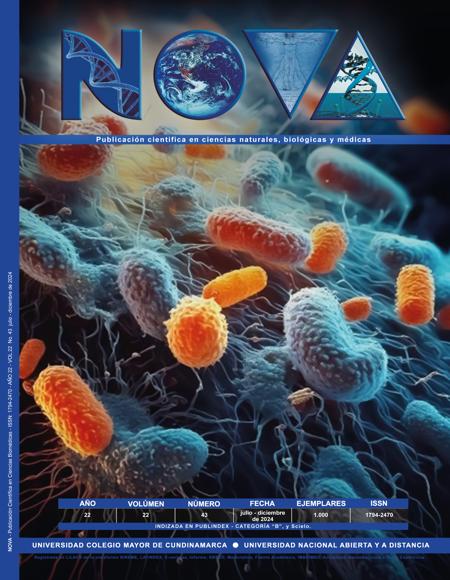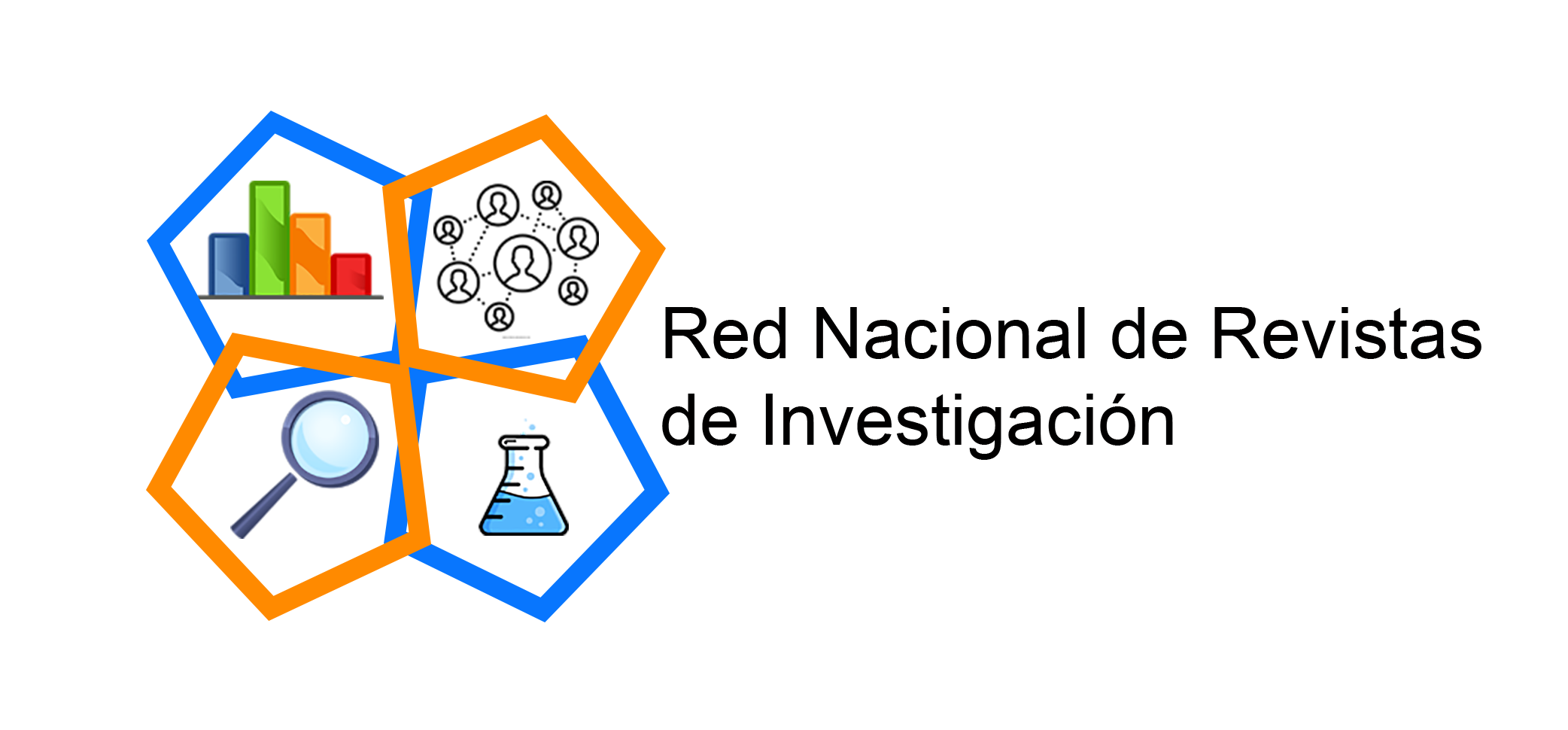Edición genética e inteligencia artificial: Desafíos ÉticosFrente a los Avances Biotecnológicos
Edición genética e inteligencia artificial: Desafíos ÉticosFrente a los Avances Biotecnológicos

Esta obra está bajo una licencia internacional Creative Commons Atribución-NoComercial-CompartirIgual 4.0.

NOVA por http://www.unicolmayor.edu.co/publicaciones/index.php/nova se distribuye bajo una Licencia Creative Commons Atribución-NoComercial-SinDerivar 4.0 Internacional.
Así mismo, los autores mantienen sus derechos de propiedad intelectual sobre los artículos.
Mostrar biografía de los autores
Resumen
Objetivo. Analizar los dilemas éticos más relevantes que surgen a raíz de los avances biotecnológicos, enfocándose en cuestiones como la equidad en el acceso a las tecnologías,los riesgos para la salud pública y la protección de los derechos humanos. Metodología.Se adoptó un enfoque cualitativo basado en una revisión exhaustiva de la literatura y un análisis crítico, utilizando fuentes como PubMed, Cochrane, Scopus, Web of Science y Google Scholar. Resultados. En las últimas décadas, la biotecnología ha avanzado de forma acelerada, impulsando desarrollos significativos en áreas como la edición genética, el diagnóstico pre implantacional, la clonación y la inteligencia artificial. Estos avances presentan desafíos éticos que demandan un escrutinio profundo desde la bioética. Conclusión. La bioética debe adaptarse a estos retos emergentes, promoviendo un equilibrio entre la innovación tecnológica, la sostenibilidad ambiental y el respeto por la dignidad humana.
Visitas del artículo 62 | Visitas PDF 60
Descargas
- Referencias
- Dyson, A., & Harris, J. (2002). Ethics & Biotechnology. Routledge.
- Ostos-Ortíz, O. L., Rosas-Arango, S. M., & González-Devia, J. L. (2019). Aplicaciones biotecnológicas de los
- microorganismos. Nova, 17(31), 129-163.
- Lucena, A. J. D. (2020). La apelación a la dignidad en el debate sobre el mejoramiento humano. Cuadernos Hispanoamericanos, (835), 30-47.
- García, Y. G., & Barrantes, H. A. (2016). Dilemas éticos para la toma de decisiones, el caso de la eugenesia. Cultura y Droga, 21(23), 114-122.
- Sawicka-Gutaj, N., Gruszczyński, D., Guzik, P., Mostowska, A., & Walkowiak, J. (2022). Publication ethics of human studies in the light of the Declaration of Helsinki–a mini- review. Journal of Medical Science, 91(2), e700-e700.
- Juengst, E. T. (1996). Self-critical federal science? The ethics experiment within the US Human Genome Project. Social Philosophy and Policy, 13(2), 63-95.
- Pereira Daoud, A. M., Popovic, M., Dondorp, W. J., Trani Bustos, M., Bredenoord, A. L., Chuva de Sousa Lopes, S. M., ... & Heindryckx, B. (2020). Modelling human embryogenesis: embryo-like structures spark ethical and policy debate. Human Reproduction Update, 26(6), 779-798.
- Cole-Turner, R. (2012). Biotechnology and Justice. In The Routledge Companion to Religion and Science (pp. 439-448). Routledge.
- Gostimskaya, I. (2022). CRISPR–cas9: A history of its discovery and ethical considerations of its use in genome editing. Biochemistry (Moscow), 87(8), 777-788.
- Memi, F., Ntokou, A., & Papangeli, I. (2018, December). CRISPR/Cas9 gene-editing: Research technologies, clinical applications and ethical considerations. In Seminars in perinatology (Vol. 42, No. 8, pp. 487-500). WB Saunders.
- Siau, K., & Wang, W. (2020). Artificial intelligence (AI) ethics: ethics of AI and ethical AI. Journal of Database Management (JDM), 31(2), 74-87.
- Daniels, N. (1982). Equity of access to health care: some conceptual and ethical issues. The Milbank Memorial Fund Quarterly. Health and Society, 51-81.
- Rodríguez Yunta, E. (2020). Desafíos éticos en investigación genómica y biotecnología. Veinte años de Acta Bioethica. Acta bioethica, 26(2), 137-145.
- Huffman, S., Shaw, E., & Loyless, S. (2020). Ensuring ethics and equity: Policy, planning, and digital citizenship. Education, 140(2), 87-99.
- Manrique de Lara, A., Soto‐Gómez, L., Núñez‐Acosta, E., Saruwatari‐Zavala, G., & Rentería, M. E. (2019).
- Ethical issues in susceptibility genetic testing for late‐onset neurodegenerative diseases. American Journal of Medical Genetics Part B: Neuropsychiatric Genetics, 180(8), 609-621.
- Ramsey, L. B., Ong, H. H., Schildcrout, J. S., Shi, Y., Tang, L. A., Hicks, J. K., ... & IGNITE Pharmacogenetics Working Group. (2020). Prescribing prevalence of medications with
- potential genotype-guided dosing in pediatric patients. JAMA network open, 3(12), e2029411-e2029411.
- Rona, R. J., Swan, A. V., Beech, R., Prentice, L., Reynolds, A., Wilson, O., ... & Vadera, P. (1989). Demand for DNA probe testing in three genetic centres in Britain (August 1986 to July 1987). Journal of medical genetics, 26(4), 226-236.
- Kaye, D. K. (2023). Addressing ethical issues related to prenatal diagnostic procedures. Maternal Health,
- Neonatology and Perinatology, 9(1), 1.
- Hedgecoe, A. M. (2006). Context, ethics and pharmacogenetics. Studies in History and Philosophy
- of Science Part C: Studies in History and Philosophy of Biological and Biomedical Sciences, 37(3), 566-582.
- Wertz, D. C. (1999). Ethics and genetics in international perspective: results of a survey. In The New Genetics: From Research into Health Care: Social and Ethical Implications for Users and Providers (pp. 75-94). Berlin, Heidelberg:Springer Berlin Heidelberg.
- Potter, V. R. (1970). Bioethics, the science of survival. Perspectives in biology and medicine, 14(1), 127-153.
- Juengst, E. T. (2021). Anticipating the ethical, legal, and social implications of human genome research: An ongoing experiment. American Journal of Medical Genetics Part A, 185(11), 3369-3376.
- Collins, F. S. (1999). Medical and societal consequences of the human genome project. New England Journal of Medicine, 341(1), 28-37.
- Nyrhinen, T., Hietala, M., Puukka, P., & Leino-Kilpi, H. (2007). Privacy and equality in diagnostic genetic testing. Nursing Ethics, 14(3), 295-308.
- Fulda, K. G., & Lykens, K. (2006). Ethical issues in predictive genetic testing: a public health perspective. Journal of medical ethics, 32(3), 143-147.
- Csaba, Á., & Papp, Z. (2003). Ethical dimensions of genetic counseling. Clinics in perinatology, 30(1), 81-93.
- Botkin, J. R. (1995). Fetal privacy and confidentiality. Hastings Center Report, 25(5), 32-39.
- Harris, M., Winship, I., & Spriggs, M. (2005). Controversies and ethical issues in cancer-genetics clinics. The Lancet Oncology, 6(5), 301-310.
- American Society of Clinical Oncology. (2003). American Society of Clinical Oncology policy statement update: genetic testing for cancer susceptibility. Journal of clinical oncology: official journal of the American Society of ClinicalOncology, 21(12), 2397-2406.
- Vineis, P. (1997). Ethical issues in genetic screening for cancer. Annals of oncology, 8(10), 945-949
- Zhang, D., Hussain, A., Manghwar, H., Xie, K., Xie, S.,Zhao, S., ... & Ding, F. (2020). Genome editing with the CRISPR‐Cas system: an art, ethics and global regulatory perspective. Plant biotechnology journal, 18(8), 1651-1669.
- Ryan, M. M. (2022). Gene therapy for neuromuscular disorders: prospects and ethics. Archives of Disease in Childhood, 107(5), 421-426.
- Schüklenk, U., Stein, E., Kerin, J., & Byne, W. (1997). The ethics of genetic research on sexual orientation. Hastings Center Report, 27(4), 6-13.
- American Psychiatric Association 2013. Diagnostic and statistical manual of mental disorders, 5th edition. Arlington: American Psychiatric Publishing.
- Amor DJ, Cameron C. 2008. PGD gender selection for non-Mendelian disorders with unequal sex incidence. Hum Reprod Oxf Engl 23: 729–734.
- McNamee, M. J., Müller, A., van Hilvoorde, I., & Holm, S. (2009). Genetic testing and sports medicine ethics. Sports Medicine, 39, 339-344.
- Hens, K., Peeters, H., & Dierickx, K. (2016). The ethics of complexity. Genetics and autism, a literature review. American Journal of Medical Genetics Part B: Neuropsychiatric Genetics, 171(3), 305-316.
- Murray, T. H. (2002). Reflections on the ethics of genetic enhancement. Genetics in Medicine, 4(6), 27-32.
- Fogleman, S., Santana, C., Bishop, C., Miller, A., & Capco, D. G. (2016). CRISPR/Cas9 and mitochondrial gene replacement therapy: promising techniques and ethical considerations. American journal of stem cells, 5(2), 39.
- Arribas-Ayllon, M. (2011). The ethics of disclosing genetic diagnosis for Alzheimer's disease: do we need a new paradigm?. British medical bulletin, 100(1), 7.
- Stratton, T. P., & Olson, A. W. (2023). Personalizing personalized medicine: the confluence of pharmacogenomics, a person’s medication experience and ethics. Pharmacy,11(3), 101.
- Capps, B., Chadwick, R., Lederman, Z., Lysaght, T., Mills, C., Mulvihill, J. J., ... & HUGO Committee on Ethics, Law and Society HUGO Executive Board. (2023). The Human Genome Organisation (HUGO) and a vision for Ecogenomics: the Ecological Genome Project. Human Genomics, 17(1), 115.
- Coustasse, A., Pekar, A., Sikula, A., & Lurie, S. (2009). Ethical considerations of genetic presymptomatic testing for Huntington's disease. Journal of hospital marketing & public relations, 19(2), 129-141.
- Courtright-Lim, A., & Drago, M. (2020). Ethics of genetic testing. Medicine, 48(10), 675-679.
- Grosse, S. D., Rogowski, W. H., Ross, L. F., Cornel, M. C., Dondorp, W. J., & Khoury, M. J. (2009). Population screening for genetic disorders in the 21st century: evidence, economics, and ethics. Public health genomics, 13(2), 106-115.
- Sulmasy, D. P. (2008). Within you/without you: biotechnology, ontology, and ethics. Journal of General
- Internal Medicine, 23(Suppl 1), 69-72.
- European Group on Ethics in Science and New Technologies. (2018). Statement on gene editing.
- Hoge, S. K., & Appelbaum, P. S. (2012). Ethics and neuropsychiatric genetics: a review of major issues.
- International Journal of Neuropsychopharmacology, 15(10), 1547-1557.
- Echemendia, R. J., & Bauer, R. M. (2015). Professional ethics in sports neuropsychology. Psychological injury and law, 8, 289-299.
- Lewin, H. A., Robinson, G. E., Kress, W. J., Baker, W. J., Coddington, J., Crandall, K. A., ... & Zhang, G. (2018).
- Earth BioGenome Project: Sequencing life for the future of life. Proceedings of the National Academy of Sciences, 115(17), 4325-4333.





